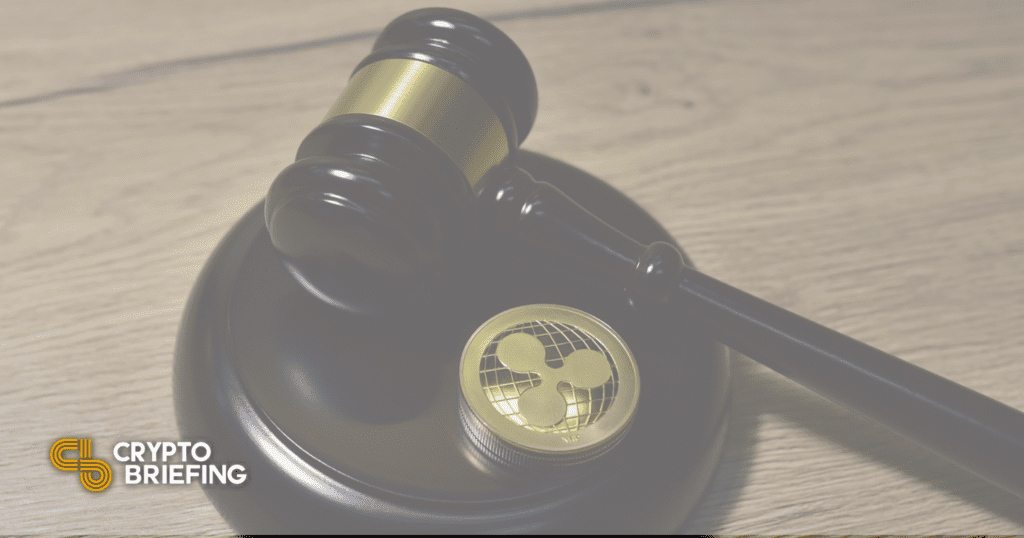
Shutterstock cover by Maksim Safaniuk
Ripple Scores Win Against SEC as Judge Slams Agency’s “Hypocrisy”
The U.S. Magistrate Judge Sarah Netburn has denied the Securities and Exchange Commission’s motion to keep the speech by its former official William Hinman protected under attorney-client privilege, calling the agency’s litigation tactics “hypocrisy.”
The development has been described as a “body slam” for Ripple.
Ripple has wagered a significant tactical and procedural win in its defense against the U.S. Securities and Exchange Commission.
On Tuesday, U.S. Magistrate Judge Sarah Netburn denied the SEC’s motion to keep the documents of an infamous speech—in which the agency’s former official William Hinman argued that Ethereum was not a security—under wraps and ordered it to produce the documents for the Court’s in-camera review. “Accordingly, the predominant purpose of the communications was not to provide legal advice to aid the SEC in conducting the public’s business. The documents must be produced,” the ruling concluded.
In December 2020, the SEC sued Ripple Labs Inc. and two of its executives, Brad Glaringhouse and Christian Larsen, alleging that the firm raised over $1.3 billion through “an unregistered, ongoing digital asset securities offering.” However, throughout its defense, Ripple has argued that its utility coin, XRP, is not a security. As one of its main arguments backing its defense, Ripple has cited a speech by the agency’s own former director of the Division of Corporate Finance, William Hinman.
On Jun. 14, 2018, Hinman spoke at Yahoo Finance’s All Markets Summit: Crypto one-day event in San Francisco, in which he remarked on the agency’s use of the Howey Test to determine whether ETH constitutes a security. He said:
“And putting aside the fundraising that accompanied the creation of Ether, based on my understanding of the present state of Ether, the Ethereum network and its decentralized structure, current offers and sales of Ether are not securities transactions. And, as with Bitcoin, applying the disclosure regime of the federal securities laws to current transactions in Ether would seem to add little value.”
Ripple has argued that Hinman’s remarks contradict the SEC’s claims that XRP is a security. In contrast, the agency has fought hard to keep the speech under wraps and block it from being used as evidence in court, asserting that it is a “purely personal errand” that doesn’t reflect agency policy.
On Tuesday, Judge Netburn denied the SEC’s motion to bring the internal documents related to the Hinman speech under attorney-client privilege and therefore block them from being produced before the court. She said:
“The hypocrisy in arguing to the Court, on the one hand, that the Speech is not relevant to the market’s understanding of how or whether the SEC will regulate cryptocurrency, and on the other hand, that Hinman sought and obtained legal advice from SEC counsel in drafting his Speech, suggests that the SEC is adopting its litigation positions to further its desired goal, and not out of a faithful allegiance to the law.”
Several legal experts commenting on the decision on Twitter have descibed the development as a significant win for Ripple. In a Tuesday tweet, Delphi Digital’s general counsel Gabriel Shapiro said it was a “big tactical win for Ripple.” Similarly, the defense lawyer and former federal prosecutor James K. Filan, who is known for closely following the case, said the decision was a “body slam.”
The outcome of the SEC’s lawsuit against Ripple could have profound implications for the entire crypto industry. For the regulatory agency, losing the case could mean significant difficulties in pursuing other crypto projects under the same allegations of selling unregistered securities in the future. It could also significantly impact the agency’s ongoing efforts to bring much of the industry under its purview by making it more difficult to label a broader range of crypto assets as securities.
Disclosure: At the time of writing, the author of this article owned ETH and several other cryptocurrencies.
